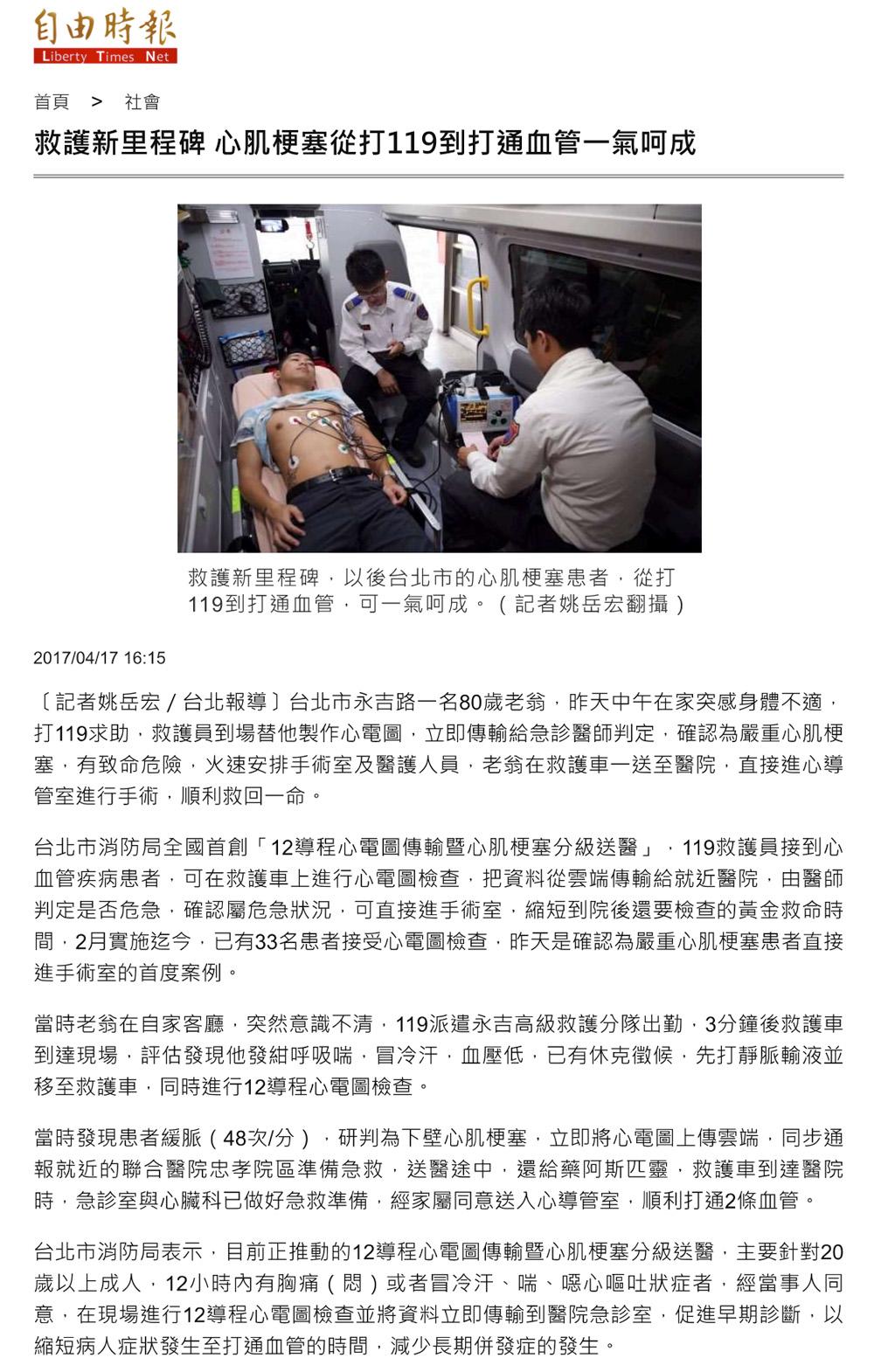Media
A Milestone for Emergency Medical Responders

New Milestone in Emergency Rescue: From Dialing 119 to Clearing Blocked Arteries in One Smooth Process
2017/04/17 16:15
[Reporter Yao Yuehong/Taipei Report] An 80-year-old man on Yongji Road in Taipei suddenly felt unwell at home yesterday noon. He dialed 119 for help, and paramedics arrived to create an electrocardiogram for him. The results were immediately transmitted to emergency physicians for assessment, confirming a severe myocardial infarction with life-threatening risks. The operation room and medical staff were swiftly arranged. The elderly man was transported to the hospital by ambulance and went directly to the catheterization lab for surgery, successfully saving his life.
Taipei City Fire Department pioneered "Transmission of 12-Lead ECG and Graded Referral for Myocardial Infarction" nationwide. When emergency medical technicians from 119 receive cardiovascular disease patients, they can conduct electrocardiogram examinations in ambulance. The data is transmitted from the cloud to the nearest hospital, where physicians determine if the situation is critical. If confirmed as critical, patients can be taken directly to operating room, shortening golden hour for life-saving checks after arrival at hospital. Since its implementation in February, 33 patients have undergone electrocardiogram examinations. The first case was marked yesterday where a patient confirmed with severe myocardial infarction was directly taken to the operating room.
The elderly man was in his living room when he suddenly lost consciousness. 119 dispatched the Yongji Advanced Rescue Team, and the ambulance arrived at the scene three minutes later. Upon assessment, they found him with cyanotic and labored breathing, cold sweats, low blood pressure, and signs of shock. Intravenous fluid was administered immediately, and he was moved to the ambulance, where a 12-lead electrocardiogram examination was conducted simultaneously.
At the time, the patient was found to have a slow pulse rate (48 beats per minute), and it was diagnosed as an inferior wall myocardial infarction. The electrocardiogram was immediately uploaded to the cloud and simultaneously reported to nearby Joint Hospital Zhongxiao Branch for emergency preparation. En route to the hospital, aspirin was administered. Upon arrival at the hospital by ambulance, emergency room and cardiology department were prepared for emergency treatment. With consent of the family, the patient was taken to the catheterization lab and successfully had two arteries cleared
Taipei City Fire Department stated that ongoing initiative of transmitting 12-Lead ECGs and grading myocardial infarctions for referral is primarily targeted at adults over the age of 20 who experience chest discomfort, cold sweats, shortness of breath, nausea, or vomiting within 12 hours. With the individual's consent, a 12-Lead ECG examination is conducted on-site, and the data is immediately transmitted to hospital emergency room. This initiative aims to facilitate early diagnosis, shorten the time from symptom onset to artery clearance, and reduce the occurrence of long-term complications.
